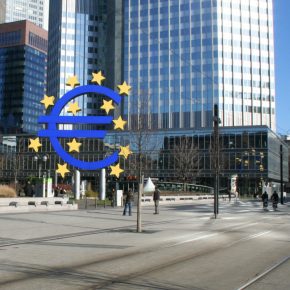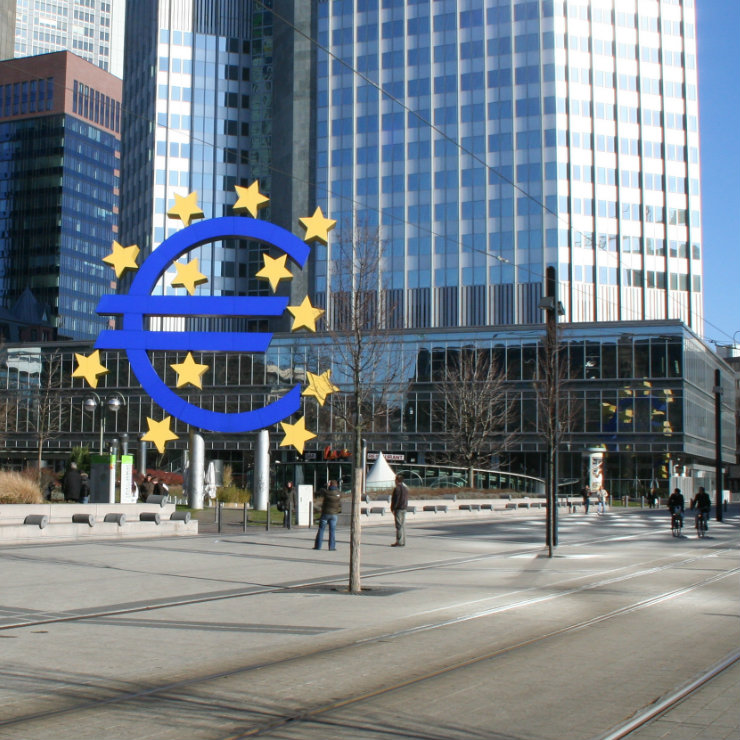Tydzień w gospodarce
Category: Raporty
Analyst, journalist specializing in the Western Balkans and Middle East domestic and foreign affairs

(Marco Milon, CC BY-NC-ND)
When it comes to the common market, the role of a single currency is to simplify its functioning, mostly by removing the exchange rate fluctuations and transaction costs, increase price transparency and strengthen market competition. Croatia is now preparing for this step, with optimistic expectations.
Indeed, effects of introduction of the EUR on Croatia’s international exchange and investment could be positive. By doing so, commodity exchange could slightly increase due to lower transaction costs, easier price comparability and currency risk removal, which could increase the competitiveness of Croatian companies. A little more visible effect of introducing the EUR could be reflected in the tourist activity due to the size of the tourist sector and the noticeable volume of cash transactions, which further enhance these effects. With regard to investments, the expected positive impact on foreign direct investment (FDI), as in the case of trade, should have occurred at the time of preparation and entry into the EU, but was not achieved due to the weak domestic investment climate and also to the restraint of international investors. However, with the introduction of the EUR and the reduction of the risk for macroeconomic stability the unfulfilled investment potential could still be an offset.
The introduction of the EUR in Croatia could increase commodity exchange, but relatively weaker than when Croatia entered the European Union. Such expectations are based on the results of empirical research for the European area, which are highly diverse, and recent research shows that, if there are some positive effects of the introduction of the EUR to trade, they are very small and considerably weaker than the impact of EU accession. Namely, a significant strengthening of commodity exports in the new members of the European Union have already begun with the accession to the European Union, which is evident also in Croatia.
In addition, it is possible that the effects of introducing the EUR are different for each member of the European Union depending on the economic characteristics of the state, such as the size or the degree of trade openness. But no matter what constraints exist, seen from a macroeconomic perspective, the introduction of the EUR should increase the transparency and stability of the overall economic environment, which could have positive effects on strengthening competition in exports and the growth of the trade exchange.
Experiences of individual European member states in terms of goods movement and exchanges are not the same. So, for example, out of the five new members with economic features similar to Croatia, after the introduction of the EUR Slovenia and Estonia experienced the rise in exports stronger than other countries. The opposite was recorded in Slovakia, while in Latvia and Lithuania the difference was not substantial. An additional aggravating circumstance for the assessment of the effects of introducing the EUR in Latvia and Lithuania is the fact that these countries are relatively new in the Eurozone and therefore it is not possible to see a long-term effects on foreign trade. In addition, the political and economic situation in Russia has a strong influence on the dynamics of the Baltic States’ trade, as Russia is one of their most important trade partners.
With regard to the impact of the introduction of the EUR on foreign investment in Croatia, a common currency could encourage investors by reducing exchange rates uncertainty and other informal barriers to investment. The existing economic literature gives a confirmation that the use of the EUR has a positive impact on the direct investment flows, based largely on the experience of the “old” EU members. But as in the case of international trade, there are great differences in the size and importance of the estimated effect.
As far as tourism is concerned, although the effects of the introduction of the EUR have been analyzed and confirmed only in a few studies, it is certain that they could be positive in Croatia, given the specifics of Croatian tourism. Most of Croatian tourist competitors, and most of the visitors, are in the Eurozone, therefore a greater potential benefit of the introduction of the EUR exists. Indisputable are the positive aspects of eliminating costs conversions, increased transparency and easier price comparability. Thus, everything leads to an increase in the competitiveness of the tourism sector.
Similarly to commodity exchanges and to the exchange of services, especially in tourism, there is a very high degree of integration of European countries, which confirms structure of their touristic visits. About half of tourism overnight stays in the European countries are made by guests from other Eurozone members, while EU guests from non-Eurozone countries make about 25 per cent of total overnight foreign guests. The same proportion applies to guests from the rest of the world. In all categories of guests the continuous growth of overnight tourists is recorded in the EU, only briefly interrupted by the global financial crisis.
However, there are also lower risks of negative effects of the introduction of the EUR, primarily related to the possible rise in the prices, especially in services. This growth, according to the experiences of other countries, could be a bit bigger in the tourism sector, which could adversely affect price competitiveness, especially in tourist destinations whose business strategy is based on relatively low prices.
Vedran Obućina is an analyst and a journalist specializing in the Croatian and Middle East domestic and foreign affairs. He is the Secretary of the Society for Mediterranean Studies at the University of Rijeka and a Foreign Affairs Analyst at The Atlantic Post.

